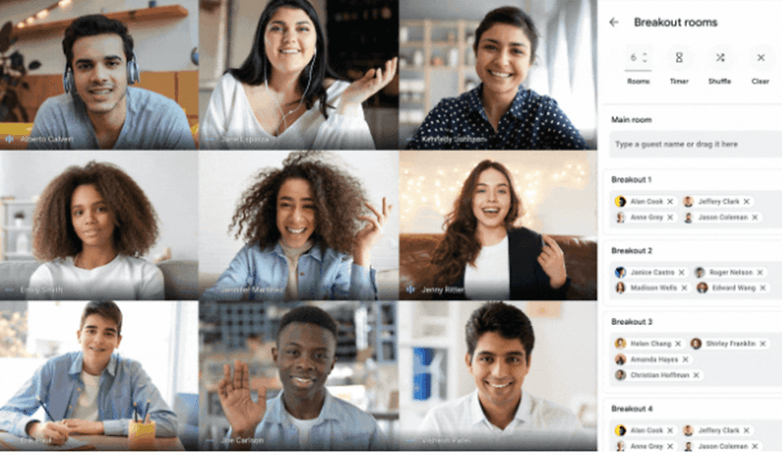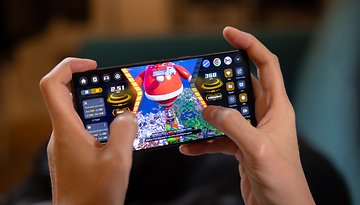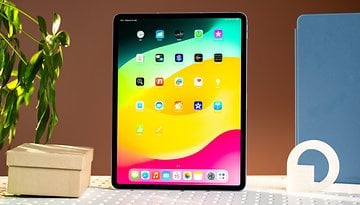Webcams in lockdown: how 2020 made us all entertainers


Read in other languages:
If I had told my mother a few months ago that we could Zoom together later - she would have probably been surprised enough to go and get an old video camera from the basement. Meanwhile, she can, like countless former technology laymen, start a video meeting within seconds and switch confidently to the rear camera for a short dog video. The year 2020 has made us entertainers and shows how well people can adapt to their circumstances.
The fact that many people in 2020 have had to deal with video calling and its idiosyncrasies is not groundbreaking, I have to admit. But in the last few weeks, I have been able to observe again and again how mothers, fathers, aunts, grandmothers, friends, and colleagues have seen the video features in WhatsApp or services like Zoom, which were previously only used in exceptional situations, as more than just a means to an end.
This year, the far-reaching restrictions on contact left us with no other choice: either we don't see each other at all and make phone calls - or we trust the cameras found in smartphones, tablets, and laptops. For many people, this is unfamiliar at first and requires some effort. At the beginning of the Corona pandemic, the Internet was full of complaints about the insufficient quality of images and the problems associated with video calling. But why are video calls such a problem? Isn't everything perfect with both a picture and sound? It's like talking to someone in a café, isn't it?
Video calling, sociologically speaking
There are many studies on the reasons why digital communication does not come close to "real" conversations. Here, sociology proves to be a real goldmine, as it provides many tools for the analysis of social situations. So what can modern technologies not do? What is taken for granted in real, human interactions? And where do they add to the whole problem?
Many sociological theories make a fundamental distinction between face-to-face interactions, i.e. communication in mutual presence, and interactions mediated by the media. Compared to e-mails, WhatsApp messages, and SMS, video calls have the advantage of being synchronous. As in a face-to-face conversation, interaction partners can therefore react in real-time to comments and questions from the other party. At the same time, they are under pressure to respond to their counterpart as immediately as possible, or at least to react with a gesture. From a purely temporal point of view, video calling is thus close to 'real' communication between those present.
The fact that video calling adds facial expressions and gestures is at first glance an advantage that Skype, Zoom, and Co. have over synchronous telephone calls. But there are subtle differences that lead to problems in interactions.

Compared to face-to-face interactions, it is completely atypical that your own face is displayed on the screen as a small control monitor. The sociologist Dirk Bäcker sees this as a problem, as he revealed in an interview with German publication Der Standard. Because not being able to perceive yourself is an important prerequisite for being able to form an "I" in interactions. In a video chat, however, we must not only think about how others perceive us, but also how we see ourselves while others see us.
In addition, there is another phenomenon that has to do with glances. A 2010 paper by Catherine Bertrand and Laurent Boudeau states that non-verbal communication in Skype conversations is less useful because there is no direct eye contact between the participants. Everyone knows this phenomenon: if you look into the eyes of the other person in a video call, don't look directly into the camera - if you look into the camera, you don't see your conversation partner. Even the minimal distance between camera and screen is a problem and leads to the fact that communication seems alienated and that we are unsettled in the interpretation of gestures and facial expressions. But before I lose myself in theories, we have taken all these hurdles this year and have proven something very human.
Take it with humour!
Another short nerd excursion: anthropologist Arnold Gehlen describes humans as "Man, his nature and his position in the world", and thus as deficient beings that assure him in relation to animals "lacking instincts and lacking specialisation". Using weakness as an advantage, humans developed a unique "cosmopolitanism" and use their lack of sensory and motor skills to adapt the environment to their needs. So people do not hesitate to adapt their environment to their own ideas and wishes.

We don't wait long to use a service that is actually intended for businesses, such as Zoom for video calls with loved ones. Or to use an interchangeable background in Google Meet just to sit virtually in your parents' living room. Or to criticise and share with humour a new reality in social media that might as well paralyse us by taking away a foundation for life. The human being is a social being and if we take away this sociality because it suddenly threatens our own life, we adapt our environment in such a way that we can compensate the social as well as possible.
Sure, my former anthropology lecturer would give me a huge slap on the wrist for this transmission (she can't - another advantage of digital communication!), but the phase of complaints and self-pity was wonderfully low this year in my eyes. Apart from some complaining, self-proclaimed "lateral thinkers", I could observe people in both lockdowns who stuck together and made the best of the situation.
Technology is often discredited as a means of separating people. On the train, everyone looks at their phone, they say, but how many times did you spontaneously start a conversation in the train compartment before the invention of the mobile phone?
If I think the technical progress of the last 20 years away for a moment, I'd be hanging around Berlin pretty lonely at the moment. My girlfriend would be unreachable, the family I would have seen each other for the last time in August.
But since we are all not satisfied with just the circumstances, they are now just a button away and can show me in real-time what was in their advent calendar. Deficient and proud of it, I just download my home on Google Street View and can at least virtually stand in front of the door.
By the time you read this article, it's already December! And because journalism has been full of negative reports this year, the last top stories of the year want to end on a positive note! What positive experiences have you made with Skype, Zoom, Meet and Co. this year? Let me know, all negative comments will be deleted - sorry!
More articles on NextPit:
Source: DRZE, Bertand & Boureau, Der Standard

















